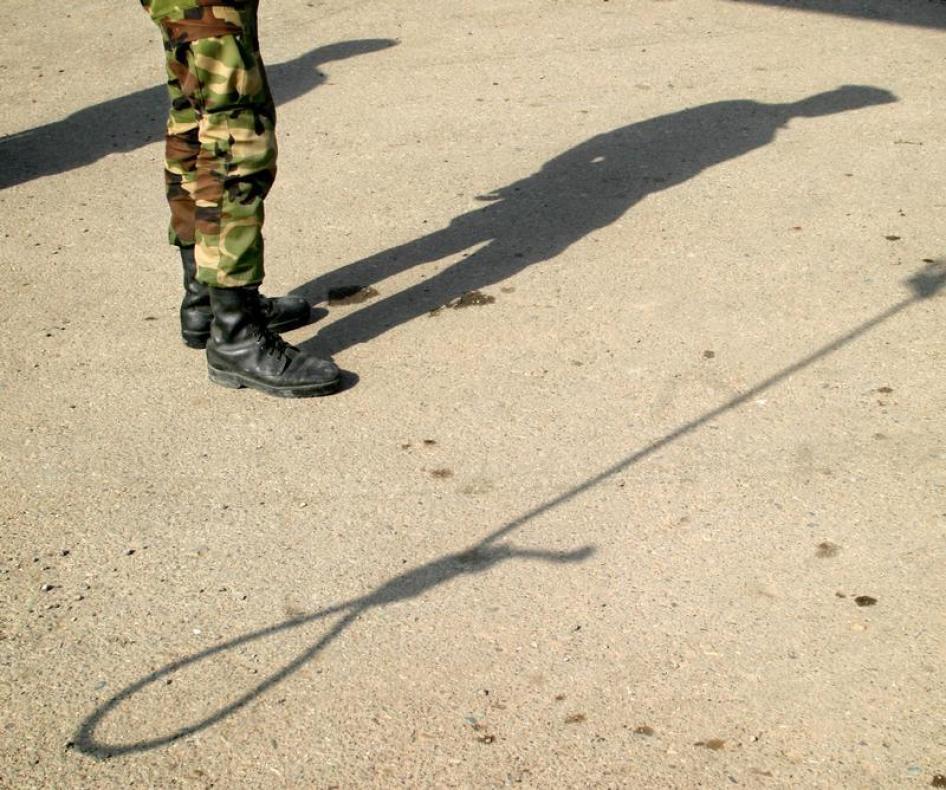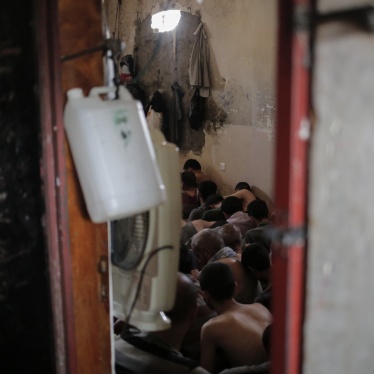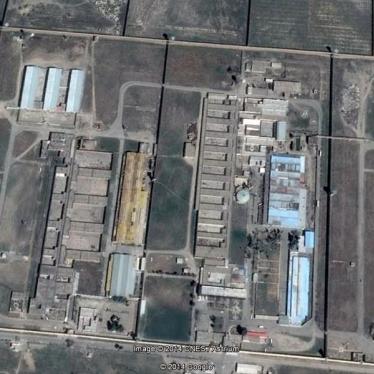(Beirut) – Iranian authorities have reportedly executed at least 87 people in the month after the presidential elections in late June, 2024, Human Rights Watch said today. Among those executed was Reza (Gholamreza) Rasaei, a Kurdish man arrested during the 2022 nationwide “Women, Life, Freedom” protests that followed the death of 22-year-old Mahsa Jina Amini in custody.
The nongovernmental group Iran Human Rights reported that in addition to the spate of post-election executions, on the morning of August 7 the authorities carried out mass executions of 29 prisoners at 2 prisons. Twenty-six people were executed at Ghezel Hesar Prison and three people at Karaj Central Prison. Those executed included 17 people sentenced for “premeditated murder,” 7 convicted on drug-related charges, and 2 Afghan nationals sentenced for “rape.” Human Rights Watch has for many years documented serious due process violations and unfair trials in Iranian courts.
“The Iranian authorities are carrying out an egregious execution spree while trumpeting their recent presidential elections as evidence of genuine change,” said Nahid Naghshbandi, acting Iran researcher at Human Rights Watch. “For those campaign slogans to be meaningful, Iran’s new president, Masoud Pezeshkian, should urgently intervene to overturn existing death sentences, place a moratorium on capital punishment, and take steps to reform the judiciary.”
The Iranian government has long made extensive use of the death penalty, including in response to protests in which those prosecuted and executed were exercising their fundamental rights to free expression and peaceful assembly. Human Rights Watch opposes the use of the death penalty in all circumstances because of its inherent cruelty. The Human Rights Activists News Agency (HRANA) reported that the authorities executed Rasaei on August 6 at Dizelabad prison in Kermanshah without prior notice to his family or a final meeting with them. Rasaei, 34, was a member of the Yarsan religious minority group from Sahneh in Kermanshah province. Rasaei was arrested on November 24, 2022, in Shahriar, Tehran, and transferred to Dizelabad prison after his interrogation.
He was sentenced to death for his alleged role in the “premeditated murder” of Nader Birami, head of the Islamic Revolutionary Guard Corps (IRGC) Intelligence Organization in Sahneh. The sentence was confirmed on October 7, 2023, after the Supreme Court rejected Rasaei’s request for a retrial.
On August 6, the women’s ward of Evin prison, which has been taking part in the “No to Executions” protest campaign for months, held further demonstrations following Rasaei’s execution, BBC Persian reported. Prison security personnel responded assaulting the protesting women, with reports indicating that the security personnel beat and injured many of the prisoners, some of whom suffered mental health effects. Among those injured was the Nobel Peace Prize laureate Narges Mohammadi, whom security personnel struck several times in the chest, the group said. Mohammadi suffered a respiratory attack and severe chest pain, causing her to collapse in the prison yard.
Iranian authorities have sentenced to death many ethnic and religious minorities in recent months. HRANA reported on August 8 that the Supreme Court confirmed the death sentences of six political prisoners in Vakilabad prison, in the city of Mashhad. HRANA said that the Mashhad Revolutionary Court in July 2023 convicted Malek Ali Fadaei-Nasab, Farhad Shakeri, Isa Eidmohammadi, Abdolhakim Azim Gorgij, Abdolrahman Gorgij, and Taj Mohammad Khormali of “armed rebellion” for their alleged membership in the Salafi group Hizb al-Furqan and the National Solidarity Front of Iranian Sunnis. On July 4, Iran’s Revolutionary Court sentenced a labor activist, Sharifeh Mohammadi, to death on a charge of “armed rebellion against the state,” based on an alleged membership in an opposition group. HRANA reported that on July 23, Branch 26 of the Tehran Revolutionary Court sentenced Pakhshan Azizi, a Kurdish political prisoner, to death for alleged membership in opposition groups.
The authorities had arrested Azizi, originally from Mahabad, in Tehran on August 4, 2023, and held her in Ward 209 of Evin prison, HRANA reported. They denied her access to a lawyer and family visits for four months before transferring her to the women’s ward. Azizi, who has a history of arrests, was previously detained in 2009 for four months before being released on bail. Another Kurdish political activist, Warisha Moradi, who faces charges of “armed rebellion against the state,” did not attend her own trial on August 4, Radio Zamaneh reported. In a letter from Evin prison, she said that she would not participate in the court proceedings in solidarity with death row prisoners Mohammadi and Azizi. She said, “I do not recognize a court that fails to deliver fair judgments. I have been accused of armed rebellion simply for being a woman, a Kurd, and a seeker of a free life.”
The Kurdistan Human Rights Network said that intelligence agents arrested Moradi, a member of the East Kurdistan Free Women Society, on August 1, 2023, in Kermanshah. The network said that she faced pressure and threats to make forced confessions. On December 26, 2023, after five months in solitary confinement, she was moved to the women's ward of Evin prison. She continues to be denied her right to make phone calls and meet with her family, the network said.
Iran Human Rights reported that Iranian authorities executed 249 people in the first six months of 2024, with 147 of them sentenced to death on drug-related charges. Amnesty International also reported that Iran was responsible for 74 percent of all recorded executions worldwide in 2023, with a total of 853 executions. These executions have disproportionately targeted Iran’s Baluch ethnic minority, who make up only about 5 percent of the population but account for 20 percent of the recorded executions. Additionally, at least 24 women and 5 people who were children at the time of their alleged crimes were among those executed.
“Iran’s use of the death penalty as a tool of intimidation following unfair trials, particularly against those seeking government reform, reveals a chilling abuse of power,” Naghshbandi said. “Other countries, especially those that engage with Iran, should condemn this inhumane practice and call for an immediate halt to executions.”









